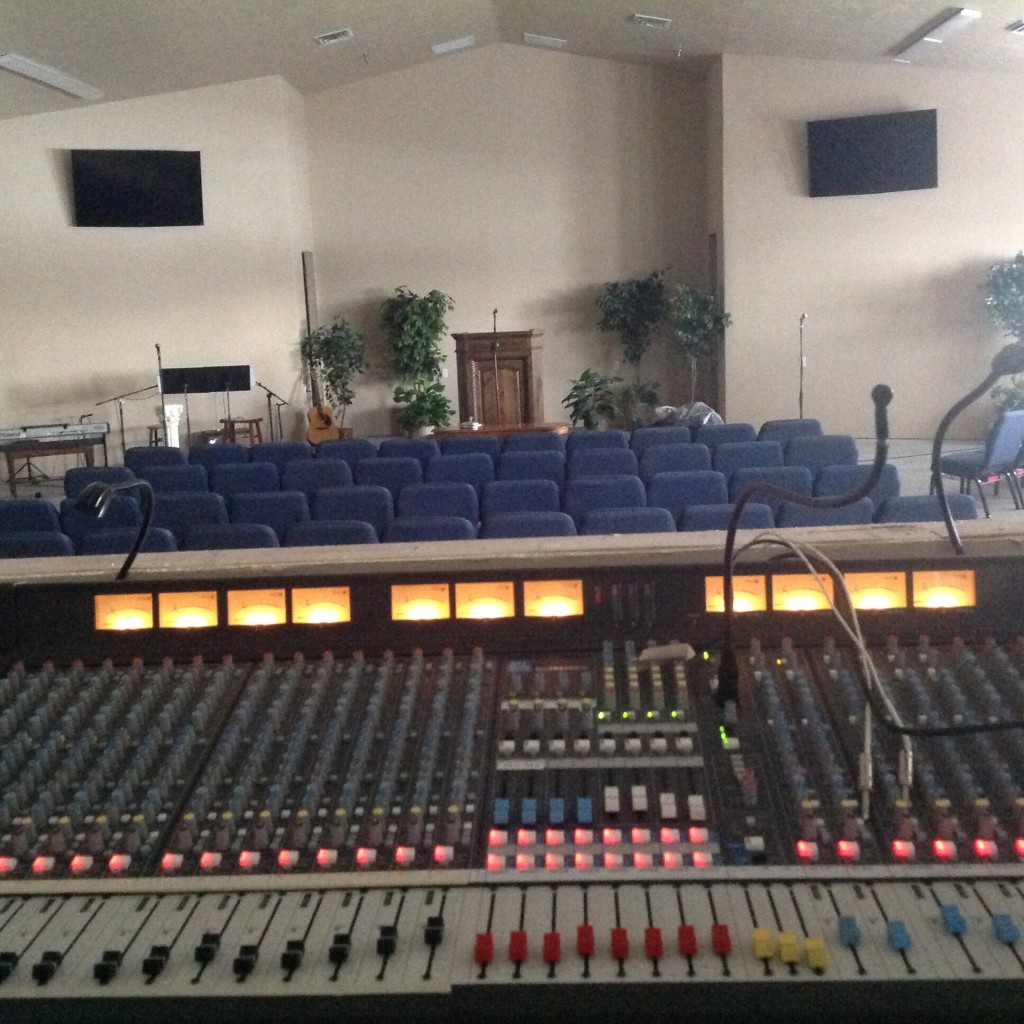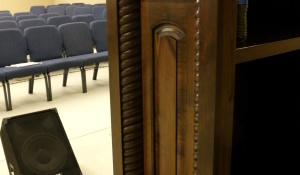Last night (September 9, 2019) I was part of a panel discussion with religious leaders in the Magic Valley at the College of Southern Idaho hosted by Justin Vipperman, a grant writer from CSI.
I have been participating in a monthly dialog with these same religious leaders since 2016 on a monthly basis. We are made up from a wide variety of thought, belief, and religions.
Last night we picked up the topic of the Person and Nature of God. This proved to be a great topic for a public forum. Anytime to speak and hear about the person and nature of God is an exciting experience to participate in. It was a chance to hear what others think and believe. How often do you get to hear a Jewish Rabbi, a Muslim Imam, a Mormon Bishop, a Roman Catholic Priest, and Luthern, Methodist, Asembly of God, and a Baptist express the person and nature of God?
Some might think this is the makings for a global war.
I like to be in honest dialog with people. When I research a topic of interest I aim at the primary resources to get the best understanding of what I’m learning about. When it comes to knowing what other people believe the best way to do that is to let them speak without any fear of what might happen to them. To hear directly from a Jewish Rabbi is rare for most evangelical Christians. To see that same man sitting at the same table with a Muslim Imam is something most people should experience at least once in your life time. Then mix in a Mormon Bishop, a Roman Catholic Priest along with a Lutheran, wow, this this has the makings for a “pay-per-view” kind of night. And then stir in a Methodist, Assembly of God and a Baptist. (Then tell the Baptist guy he has 3 minutes to express his position. I tried.)
I found the dialog helpful. Greater clarity was communicated of what each of us think. To be clear, it is not what we each thing about the same Being it is toward a greater conversation on the differences in the god’s the various religions follow. I hold to a firm observation from listening to each other that we cannot possibly be looking at the same deity.
I’m thankful to the Almighty God for the opportunity to speak out in the public forum and have great hope for truth to be heard and seen. I’m thank for my neighbors that were at the table with me. I am pleased so many people attended. I’m grateful to the College of Southern Idaho, especially Justin Vipperman, for graciously hosting the event.
I’ll work on a series of posts that will include the questions that were asked and an expression of how I answered. For example, one question from the audience was “can you explain the gospel?” to which the moderator handed me the mic….
Following is my printed handout with citation.
God and the Holy Trinity
Isaiah 43:8-11 KJV
8 Bring forth the blind people that have eyes, and the deaf that have ears.
9 Let all the nations be gathered together, and let the people be assembled: who among them can declare this, and shew us former things? let them bring forth their witnesses, that they may be justified: or let them hear, and say, It is truth.
10 Ye are my witnesses, saith the Lord, and my servant whom I have chosen: that ye may know and believe me, and understand that I am he: before me there was no God formed, neither shall there be after me.
11 I, even I, am the Lord; and beside me there is no saviour.
1689 Second London Confession
- The Lord our God is one, the only living and true God. He is self-existent and infinite in being and perfection. His essence cannot be understood by anyone but him. He is a perfectly pure spirit. He is invisible and has no body, parts, or changeable emotions.a He alone has immortality, dwelling in light that no one can approach. He is unchangeable, immense, eternal, incomprehensible, almighty, in every way infinite, absolutely holy, perfectly wise, wholly free, completely absolute. He works all things according to the counsel of his own unchangeable and completely righteous will for his own glory. He is most loving, gracious, merciful, and patient. He overflows with goodness and truth, forgiving iniquity, transgression, and sin. He rewards those who seek him diligently. At the same time, he is perfectly just and terrifying in his judgments. He hates all sin and will certainly not clear the guilty.
1 Corinthians 8:4, 6; Deuteronomy 6:4. Jeremiah 10:10; Isaiah 48:12. Exodus 3:14. John 4:24. 1 Timothy 1:17; Deuteronomy 4:15, 16. Malachi 3:6. 1 Kings 8:27; Jeremiah 23:23. Psalm 90:2. Genesis 17:1. Isaiah 6:3. Psalm 115:3; Isaiah 46:10. Proverbs 16:4; Romans 11:36. Exodus 34:6, 7; Hebrews 11:6. Nehemiah 9:32, 33. Psalm 5:5, 6. Exodus 34:7; Nahum 1:2, 3. - God has all life, glory, goodness, and blessedness in and of himself; he alone is all-sufficient in himself. He does not need any creature he has made nor does he derive any glory from them. Instead, he demonstrates his own glory in them, by them, to them, and upon them. He alone is the source of all being, and everything is from him, through him, and to him. He has absolute sovereign rule over all creatures, to act through them, for them, or upon them as he pleases. In his sight everything is open and visible. His knowledge is infinite and infallible. It does not depend upon any creature, so for him nothing is contingent or uncertain. He is absolutely holy in all his plans, in all his works, and in all his commands. Angels and human beings owe to him all the worship, service, or obedience that creatures owe to the Creator and whatever else he is pleased to require of them.
John 5:26. Psalm 148:13. Psalm 119:68. Job 22:2, 3. Romans 11:34–36. Daniel 4:25, 34, 35. Hebrews 4:13. Ezekiel 11:5; Acts 15:18. Psalm 145:17. Revelation 5:12–14. - This divine and infinite Being consists of three real persons,c the Father, the Word or Son, and the Holy Spirit. These three have the same substance, power, and eternity, each having the whole divine essence without this essence being divided. The Father is not derived from anyone, neither begotten nor proceeding. The Son is eternally begotten of the Father. The Holy Spirit proceeds from the Father and the Son. All three are infinite and without beginning and are therefore only one God, who is not to be divided in nature and being. Yet these three are distinguished by several distinctive characteristics and personal relations. This truth of the Trinity is the foundation of all of our fellowship with God and of our comforting dependence on him.
1 John 5:7; Matthew 28:19; 2 Corinthians 13:14. Exodus 3:14; John 14:11; 1 Corinthians 8:6. John 1:14,18. John 15:26; Galatians 4:6.


